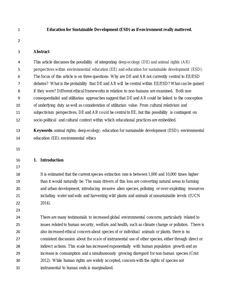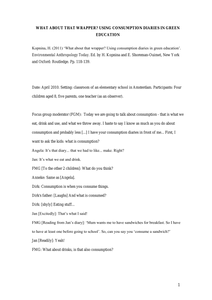BackgroundGiven the importance of the first 1000 days of a child’s life in terms of laying the foundations for healthy growth and development, parents are a logical target group for supporting health-related practices with regard to young children. However, little attention is paid to the influence of the wider social community on the health and development of young children during this crucial period. This includes grandmothers, who often have a significant influence on health-related practices of their grandchildren. The aim of this study was therefore to explore the influence of grandmothers on health related practices of their grandchildren during the first 1000 days, from the perspectives of both grandmothers and mothers with a Turkish background.MethodThis qualitative study in the Netherlands collected data during focus group discussions with grandmothers (N = 3), interviews with grandmothers (N = 18) and interviews with mothers (N = 16), all with a Turkish background. Data was collected in the period between June 2019 and April 2021 and analysed using a thematic content analysis.ResultsThe influence of grandmothers and the wider social community on health related practices during the first 1000 days of a child’s life is substantial and self-evident. The support of grandmothers is often rooted in various socio-cultural norms and practices. The mothers of young children can experience the guidance and pressure they receive from grandmothers and the wider social community as quite stressful. Conflicting views and practices tend to arise between grandmothers and mothers when a grandmother babysits. Both mothers and grandmothers often find it difficult to discuss these differences openly, for fear this might lead to a family conflict.ConclusionThis study shows that grandmothers and the wider social community play an influential role in supporting a healthy first 1000 days of a child’s life. The strong involvement of grandmothers may lead to tension between the mothers and grandmothers when their ideas about healthy practices are not in agreement and may lead to unhealthy practices. In targeting this wider social community, it is important to consider the various socio-cultural factors that underlie the advice, support, practices and beliefs of the individuals involved.
DOCUMENT

A boundary is a metaphor for an experience of discontinuity wherein a socio-cultural difference is perceived as a challenge or obstacle in action or interaction. This case study explores eight student teachers’ perceptions of boundaries during an international teaching internship to identify where experiences of professional learning originate. We found four types of boundary experiences related to discontinuity: (1) existing pedagogical approaches, (2) personal aspects, (3) a specific school type or culture, and (4) the world outside the classroom. Results suggest that the learning potential of experiencing discontinuity resides in situations wherein student teachers’ beliefs are being questioned, thus making the student teacher aware of their implicit beliefs. Student teachers’ attempts to reposition themselves while experiencing discontinuity resulted in questioning their existing ways of thinking and acting. Everyday teaching approaches were no longer always taken for granted, thus opening alternate perspectives. In this study, student teacher experiences of discontinuity had various dimensions (cultural, professional, and personal), which also determined their learning potential.
LINK
This article discusses the possibility of integrating deep ecology (DE) and animal rights (AR) perspectives within environmental education (EE) and education for sustainable development (ESD). The focus of this article is on three questions: why are DE and AR not currently central to EE/ESD debates? What is the probability that DE and AR will be central within EE/ESD? What can be gained if they were? Different ethical frameworks in relation to non-humans are examined. Both non-consequentialist and utilitarian approaches suggest that DE and AR could be linked to the conception of underlying duty as well as consideration of utilitarian value. From cultural relativism and subjectivism perspectives, DE and AR could be central to EE, but this possibility is contingent on socio-political and cultural context within which educational practices are embedded. https://doi.org/10.1016/j.envdev.2014.09.001 https://www.linkedin.com/in/helenkopnina/
MULTIFILE

Environmental or ‘green' education is an important driving force behind the ‘greening' of society as it plays a critical role in raising environmental awareness and preparing students for green jobs. None of the existing environmental attitudes and behavior measures is focused on the evaluation of green education, especially in relation to consumption. To date, no longitudinal studies of children and students' attitudes towards consumption influenced by education exist. Also, little has been done to explore the socio-cultural context in which attitudes toward consumption are being formed and to explain the cross-cultural differences in environmental attitudes. This pilot study is designed to take the first step towards developing methods complementing existing quantitative measurements with qualitative strategies, such as consumption diaries, focus groups, and concept mapping. While this research is just a first attempt to tackle children's knowledge and attitudes consumption, preliminary results of the research on which this chapter is based and enthusiasm of the research participants encourage the author to stress the importance of consumption studies as part of green education for educational program developers. As a chapter of this volume, the author hopes that this study will add to the anthropological depository of research on the cultural variants in the perception of the environment in children. This chapter draws upon the consumption diaries collected from the upper-elementary school children in Amsterdam, The Netherlands, between September 2009 and May 2010. Consumption diaries are chronological documents recording purchase, use, and waste of materials, which can be used both as analytical tools and the means to stimulate environmental awareness. The four main methodological steps involved in this research were as follows. Children were asked to complete the consumption diary, paying specific attention to use and waste materials. Consequently, focus group meetings were held with parents and their children to discuss the diaries. Finally, interviews with the children were conducted in order to generate statements that supplement those generated by focus groups for carrying out the concept mapping analysis. The concept mapping analysis was then conducted to organize the order and analyze the ideas expressed in the focus group and interview sessions. This is an Accepted Manuscript of a book chapter published by Routledge/CRC Press in "Environmental Anthropology Today" on 8/5/11 available online: https://doi.org/10.4324/9780203806906 LinkedIn: https://www.linkedin.com/in/helenkopnina/
MULTIFILE

Human and plant relationships are described within the rich tradition of multispecies ethnography, ethnobotany, and political ecology. In theorizing this relationship, the issues of functionalism, and interconnectivity are raised. This article aims to re-examine the position of plants in the context of contemporary urban spaces through the prism of environmental ethics. Despite conceptual plurality and socio-cultural complexity of human–plant relationships, social scientists fail to note how the perception of ‘greenery’ has objectified plants in urban environment. Without seriously considering bioethics, theories of human–plant relationship might fail to note exploitive anthropocentric relationship between humans and plants in urban spaces. The article is inspired by reflections of urban flora in Amsterdam, The Netherlands. https://doi.org/10.1016/j.scs.2013.01.007 https://www.linkedin.com/in/helenkopnina/
MULTIFILE

This case study explored examples of pre-service teachers’ learning when experiencing discontinuity and (re)positioning themselves in various professional communities and cultures during an international teaching internship. Pre-service teachers’ experiences of discontinuity were defined as boundary experiences, when challenging or problematic socio-cultural differences significantly influenced their (inter)actions. Pre-service teachers’ attempts to (re)position themselves in the unfamiliar professional and cultural contexts are described as a state of continuity and examples of boundary crossing. Learning mechanisms of identification, coordination, reflection and transformation in the theory of boundary crossing were used to analyze 15 boundary experiences. The four learning mechanisms provided insight into how a multi-level approach (including personal, professional and cultural aspects) gives a more nuanced perspective on the dominant adjustment paradigm. The value of a boundary experience for preservice teachers’ learning during an international teaching experience resided mostly in raising awareness of existing, often taken-for-granted, personal and professional beliefs and their ability to switch between cultural and professional perspectives. The 15 boundary experiences in this study suggest that educators could focus more on pre-service teachers’ coping strategies, existential questions and cultural negotiation when they experience discontinuity, in addition to the current focus on learning outcomes, transformations, or cultural fit.
LINK
This paper will describe the rationale and findings from a multinational study of online uses and gratifications conducted in the United States, Korea, and the Netherlands in spring 2003. A survey research method of study was conducted using a questionnaire developed in three languages and was presented to approximately 400 respondents in each country via the Web. Web uses and gratifications were analyzed cross-nationally in a comparative fashion and focused on the perceived involvement in different types of on-line communities. Findings indicate that demographic characteristics, cultural values, and Internet connection type emerged as critical factors that explain why the same technology is adopted differently. The analyses identified seven major gratifications sought by users in each country: social support, surveillance & advice, learning, entertainment, escape, fame & aesthetic, and respect. Although the Internet is a global medium, in general, web use is more local and regional. Evidence of media use and cultural values reported by country and online community supports the hypothesis of a technological convergence between societies, not a cultural convergence.
DOCUMENT
In dit boekje worden de resultaten van het NRO Comeniusproject "Gelijke kansen door meertalige pabo's" (2018-2021) gepresenteerd. In dit project wordt de toegankelijkheid van de pabo voor nieuwkomers bevorderd door een schakelklas van mbo naar hbo. In de didactiek en het opleidingsonderwijs wordt de rol van de thuistalen bij het leren ontwikkeld, zoals beschreven in het rapport ‘Ruimte voor nieuwe talenten’ (2017). Docenten én studenten gaan samenwerken om de gelijke kansen van studenten die ondervertegenwoordigde talen spreken, te bevorderen.
DOCUMENT

Many students in secondary schools consider the sciences difficult and unattractive. This applies to physics in particular, a subject in which students attempt to learn and understand numerous theoretical concepts, often without much success. A case in point is the understanding of the concepts current, voltage and resistance in simple electric circuits. In response to these problems, reform initiatives in education strive for a change of the classroom culture, putting emphasis on more authentic contexts and student activities containing elements of inquiry. The challenge then becomes choosing and combining these elements in such a manner that they foster an understanding of theoretical concepts. In this article we reflect on data collected and analyzed from a series of 12 grade 9 physics lessons on simple electric circuits. Drawing from a theoretical framework based on individual (conceptual change based) and socio-cultural views on learning, instruction was designed addressing known conceptual problems and attempting to create a physics (research) culture in the classroom. As the success of the lessons was limited, the focus of the study became to understand which inherent characteristics of inquiry based instruction complicate the process of constructing conceptual understanding. From the analysis of the data collected during the enactment of the lessons three tensions emerged: the tension between open inquiry and student guidance, the tension between students developing their own ideas and getting to know accepted scientific theories, and the tension between fostering scientific interest as part of a scientific research culture and the task oriented school culture. An outlook will be given on the implications for science lessons.
LINK
This thesis focuses on topics such as preterm birth, variation in gross motor development, factors that influence (premature) infant gross motor development, and parental beliefs and practices. By gaining insight into these topics, this thesis aims to contribute to clinical decision-making of paediatric physiotherapists together with parents, and with that shape early intervention.
DOCUMENT
